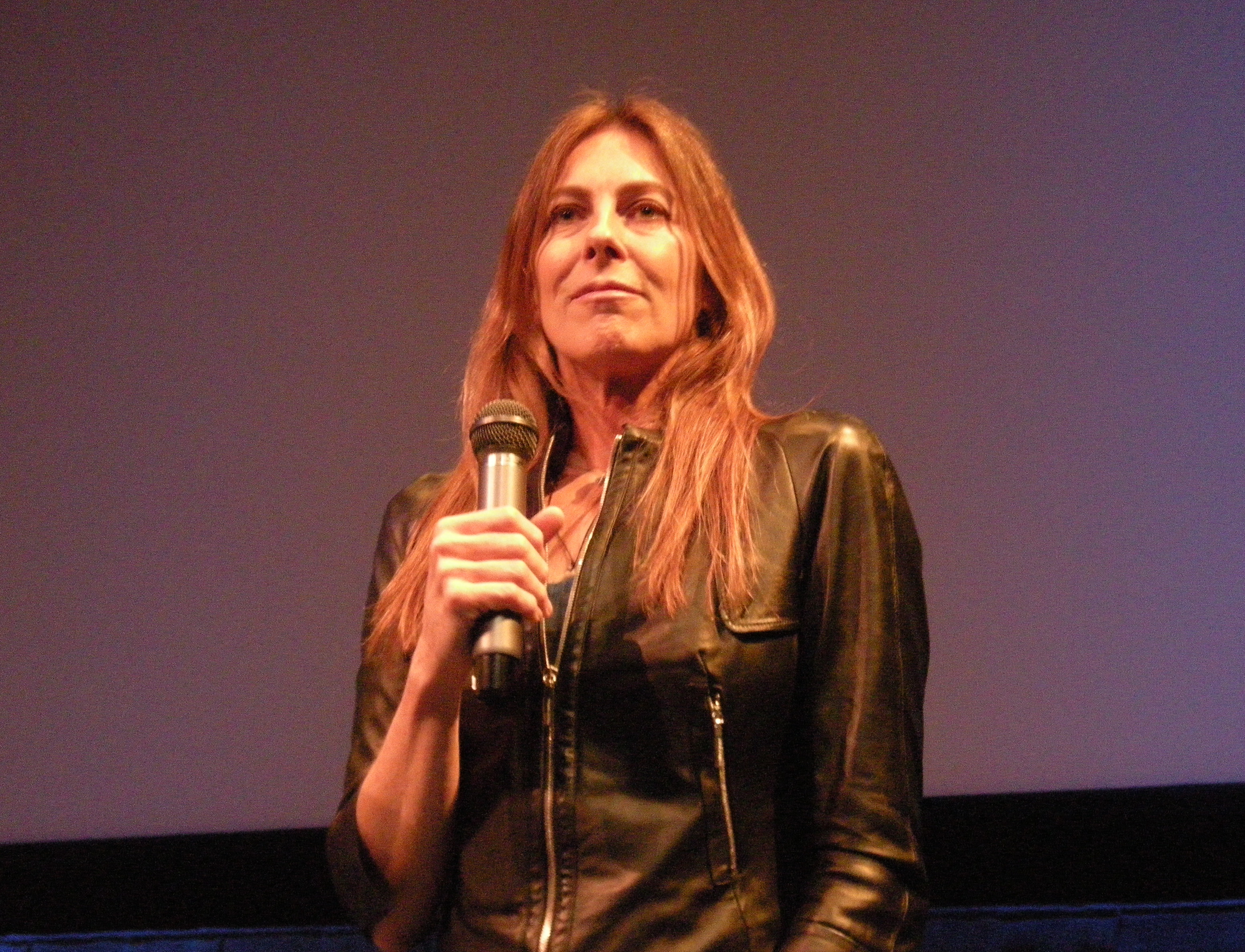|
Burning Chrome
"Burning Chrome" is a science fiction short story by Canadian-American writer William Gibson, first published in '' Omni'' in July 1982. Gibson first read the story at a science fiction convention in Denver, Colorado in the autumn of 1981, to an audience of four people, among them Bruce Sterling (who Gibson later said "completely got it"). It was nominated for a Nebula Award in 1983 and collected with the rest of Gibson's early short fiction in a 1986 volume of the same name. Plot "Burning Chrome" tells the story of two freelance |
William Gibson
William Ford Gibson (born March 17, 1948) is an American-Canadian speculative fiction writer and essayist widely credited with pioneering the science fiction subgenre known as ''cyberpunk''. Beginning his writing career in the late 1970s, his early works were noir, near-future stories that explored the effects of technology, cybernetics, and computer networks on humans—a "combination of lowlife and high tech"—and helped to create an iconography for the information age before the ubiquity of the Internet in the 1990s. Gibson coined the term " cyberspace" for "widespread, interconnected digital technology" in his short story "Burning Chrome" (1982), and later popularized the concept in his acclaimed debut novel ''Neuromancer'' (1984). These early works of Gibson's have been credited with "renovating" science fiction literature in the 1980s. After expanding on the story in ''Neuromancer'' with two more novels (''Count Zero'' in 1986, and ''Mona Lisa Overdrive'' in 1988), th ... [...More Info...] [...Related Items...] OR: [Wikipedia] [Google] [Baidu] |
Cyberspace
Cyberspace is a concept describing a widespread interconnected digital technology. "The expression dates back from the first decade of the diffusion of the internet. It refers to the online world as a world 'apart', as distinct from everyday reality. In cyberspace people can hide behind fake identities, as in the famous The New Yorker cartoon." (Delfanti, Arvidsson, 150) The term entered popular culture from science fiction and the arts but is now used by technology strategists, security professionals, government, military and industry leaders and entrepreneurs to describe the domain of the global technology environment, commonly defined as standing for the global network of interdependent information technology infrastructures, telecommunications networks and computer processing systems. Others consider cyberspace to be just a notional environment in which communication over computer networks occurs. The word became popular in the 1990s when the use of the Internet, networking, a ... [...More Info...] [...Related Items...] OR: [Wikipedia] [Google] [Baidu] |
Science Fiction Short Stories
Science is a systematic endeavor that builds and organizes knowledge in the form of testable explanations and predictions about the universe. Science may be as old as the human species, and some of the earliest archeological evidence for scientific reasoning is tens of thousands of years old. The earliest written records in the history of science come from Ancient Egypt and Mesopotamia in around 3000 to 1200 BCE. Their contributions to mathematics, astronomy, and medicine entered and shaped Greek natural philosophy of classical antiquity, whereby formal attempts were made to provide explanations of events in the physical world based on natural causes. After the fall of the Western Roman Empire, knowledge of Greek conceptions of the world deteriorated in Western Europe during the early centuries (400 to 1000 CE) of the Middle Ages, but was preserved in the Muslim world during the Islamic Golden Age and later by the efforts of Byzantine Greek scholars who brought Greek man ... [...More Info...] [...Related Items...] OR: [Wikipedia] [Google] [Baidu] |
Cyberpunk Short Stories
Cyberpunk is a subgenre of science fiction in a dystopian futuristic setting that tends to focus on a "combination of lowlife and high tech", featuring futuristic technological and scientific achievements, such as artificial intelligence and cybernetics, juxtaposed with societal collapse, dystopia or decay. Much of cyberpunk is rooted in the New Wave science fiction movement of the 1960s and 1970s, when writers like Philip K. Dick, Michael Moorcock, Roger Zelazny, John Brunner, J. G. Ballard, Philip José Farmer and Harlan Ellison examined the impact of drug culture, technology, and the sexual revolution while avoiding the utopian tendencies of earlier science fiction. Comics exploring cyberpunk themes began appearing as early as Judge Dredd, first published in 1977. Released in 1984, William Gibson's influential debut novel ''Neuromancer'' helped solidify cyberpunk as a genre, drawing influence from punk subculture and early hacker culture. Other influential cyberpu ... [...More Info...] [...Related Items...] OR: [Wikipedia] [Google] [Baidu] |
1982 Short Stories
__NOTOC__ Year 198 (CXCVIII) was a common year starting on Sunday (link will display the full calendar) of the Julian calendar. At the time, it was known as the Year of the Consulship of Sergius and Gallus (or, less frequently, year 951 '' Ab urbe condita''). The denomination 198 for this year has been used since the early medieval period, when the Anno Domini calendar era became the prevalent method in Europe for naming years. Events By place Roman Empire *January 28 **Publius Septimius Geta, son of Septimius Severus, receives the title of Caesar. **Caracalla, son of Septimius Severus, is given the title of Augustus. China *Winter – Battle of Xiapi: The allied armies led by Cao Cao and Liu Bei defeat Lü Bu; afterward Cao Cao has him executed. By topic Religion * Marcus I succeeds Olympianus as Patriarch of Constantinople (until 211). Births * Lu Kai (or Jingfeng), Chinese official and general (d. 269) * Quan Cong, Chinese general and advisor (d. ... [...More Info...] [...Related Items...] OR: [Wikipedia] [Google] [Baidu] |
The Oxford Dictionary Of Science Fiction
''Brave New Words: The Oxford Dictionary of Science Fiction'' is a book published in 2007 by the Oxford University Press. It was edited by Jeff Prucher, with an introduction by Gene Wolfe. Contents The vocabulary includes words used in science fiction books, TV and film. A second category rises from discussion and criticism of science fiction, and a third category comes from the subculture of fandom. It describes itself as "the first historical dictionary devoted to science fiction", tracing how science fiction terms have developed over time. Reception The dictionary received positive reviews from science fiction journals, although the critic Rob Latham felt that its digital version (the SF Citations Project) might be preferable to the print format, which could grow out-of-date. In 2008 it won the Hugo Award for Best Related Book The Hugo Award for Best Related Work is one of the Hugo Awards given each year for primarily non-fiction works related to science fiction or f ... [...More Info...] [...Related Items...] OR: [Wikipedia] [Google] [Baidu] |
No Maps For These Territories
''No Maps for These Territories'' is an independent documentary film made by Mark Neale focusing on the speculative fiction author William Gibson. It features appearances by Jack Womack, Bruce Sterling, Bono, and The Edge and was released by Docurama. The film had its world premiere at the Vancouver International Film Festival in October 2000. Background and premise At the time of the project's conception, Gibson – an American exile in Vancouver, Canada – was seen as a reclusive figure, who thought the didactic inclination in novelists anathema and was not prone to divulging much in the way of personal information in interviews and retrospectives. The documentary was intended to assuage the dearth of knowledge of Gibson's perspectives on self, career and culture and to uncover the hitherto obscured depths of the writer. The film was shot on location in the United States, Canada, Ireland, and the United Kingdom. Content During the documentary Gibson muses both on his past and ... [...More Info...] [...Related Items...] OR: [Wikipedia] [Google] [Baidu] |
Mark Neale
Mark Neale is a British documentarian and film director based in Los Angeles, California. His best-known work is the 1999 documentary ''No Maps for These Territories'', which profiled cyberpunk author William Gibson. Prior to ''No Maps'', Neale had been an acclaimed music video director, making videos for artists such as U2, Paul Weller and Counting Crows. In 2003, Neale wrote and directed '' Faster'', a documentary on the MotoGP motorcycle racing world championship, and its sequel '' The Doctor, the Tornado and the Kentucky Kid'' in 2006. Filmography *''Mojo Working: Jimi Hendrix'' (1992) *''No Maps for These Territories'' (1999) *'' Faster'' (2003) *''Faster & Faster'' (2004) *''The Doctor, the Tornado and the Kentucky Kid'' (2006) *''Charge, Zero Emissions/Maximum Speed'' (2011) *'' Fastest'' (2011) *''Hitting The Apex'' (2015) Videography *'' U2 — "Lemon The lemon (''Citrus limon'') is a species of small evergreen trees in the flowering plant family Rutac ... [...More Info...] [...Related Items...] OR: [Wikipedia] [Google] [Baidu] |
BBC Radio 4 Extra
BBC Radio 4 Extra (formerly BBC Radio 7) is a British digital radio station from the BBC, broadcasting archived repeats of comedy, drama and documentary programmes nationally, 24 hours a day. It is the sister station of BBC Radio 4 and the principal broadcaster of the BBC's spoken-word archive, and as a result the majority of its programming originates from that archive. It also broadcasts extended and companion programmes to those broadcast on Radio 4, and provides a "catch-up" service for certain programmes. The station launched in December 2002 as BBC 7, broadcasting a mix of archive comedy, drama and current children's radio. The station was renamed BBC Radio 7 in 2008, then relaunched as Radio 4 Extra in April 2011. For the first quarter of 2013, Radio 4 Extra had a weekly audience of 1.642 million people and had a market share of 0.95%; in the last quarter of 2016 the numbers were 2.184 million listeners and 1.2% of market share. According to RAJAR, the station broadc ... [...More Info...] [...Related Items...] OR: [Wikipedia] [Google] [Baidu] |
BBC Radio 7
BBC Radio 4 Extra (formerly BBC Radio 7) is a British Digital radio in the United Kingdom, digital radio broadcasting, radio station from the BBC, broadcasting archived repeats of comedy, drama and documentary programmes nationally, 24 hours a day. It is the sister station of BBC Radio 4 and the principal broadcaster of the BBC's BBC Sound Archive, spoken-word archive, and as a result the majority of its programming originates from that archive. It also broadcasts extended and companion programmes to those broadcast on Radio 4, and provides a "catch-up" service for certain programmes. The station launched in December 2002 as BBC 7, broadcasting a mix of archive comedy, drama and current children's radio. The station was renamed BBC Radio 7 in 2008, then relaunched as Radio 4 Extra in April 2011. For the first quarter of 2013, Radio 4 Extra had a weekly audience of 1.642 million people and had a market share of 0.95%; in the last quarter of 2016 the numbers were 2.184 million li ... [...More Info...] [...Related Items...] OR: [Wikipedia] [Google] [Baidu] |
Kathryn Bigelow
Kathryn Ann Bigelow (; born November 27, 1951) is an American filmmaker. Covering a wide range of genres, her films include ''Near Dark'' (1987), ''Point Break'' (1991), '' Strange Days'' (1995), '' K-19: The Widowmaker'' (2002), ''The Hurt Locker'' (2008), ''Zero Dark Thirty'' (2012), and ''Detroit'' (2017). Bigelow was the first woman to win the Academy Award for Best Director with ''The Hurt Locker'', the Directors Guild of America Award for Outstanding Directing, and the BAFTA Award for Best Direction. She was also the first woman to win the Saturn Award for Best Director, with ''Strange Days''. In addition, ''Time'' magazine named her one of the 100 most influential people in the world in 2010. Early life and education Bigelow was born in San Carlos, California, the only child of Gertrude Kathryn (née Larson; 1917–1994), a librarian, and Ronald Elliot Bigelow (1915–1992), a paint factory manager. Her mother was of Norwegian descent. She attended Sunny Hills High Scho ... [...More Info...] [...Related Items...] OR: [Wikipedia] [Google] [Baidu] |




